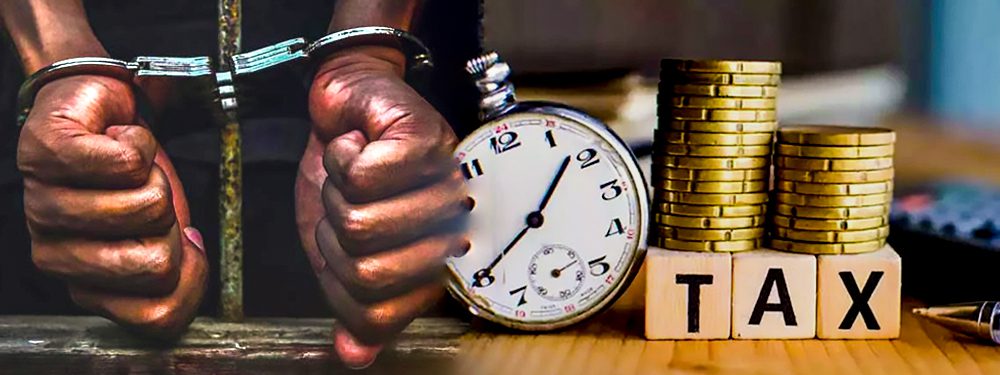Recent months have seen a sustained increase of instances whereby both companies and their respective directors have been charged with tax offences before various courts.
The decision to criminally charge companies and directors for tax offences is not a new phenomenon with the trend having started in late 2019. By the end of the year 2019, the KRA had prosecuted 118 individuals with the tax demanded being KES 54.3 billion.
It is noteworthy that most of the prosecutions have been related to alleged tax evasion by the directors of the companies. Tax evasion can simply be defined as the use of illegal means to avoid paying taxes. This typically entails under-declaring income in the tax returns, inflating expenses or simply failing to declare income for tax purposes among others.
We discuss below a few elements of criminal liability in tax law in Kenya:
Criminal Liability in Tax Law
Criminal liability in relation to tax law generally arises under two legislative acts: Anti-Corruption and Economic Crimes Act (ACECA) and the Tax Procedures Act (TPA). However, the East Africa Community Customs Management Act (EACCMA) and the Excise Duty Act also prescribe criminal sanctions.
The ACECA defines the term ‘corruption’ to include
“an offence involving dishonesty in connection with tax.”
Further, Section 45 of the ACECA provides a person is guilty of an economic crime if the person
fraudulently or otherwise unlawfully fails to pay any taxes payable to any public body or obtains any exemption, remission, reduction or abatement from payment of such taxes.
In summary, the general theme which runs through the offences as prescribed is that there must be intent to defraud in relation to the payment to taxes.
Alike to the ACECA, criminal offences as provided for in the TPA generally prescribe that an offence is committed when: the taxpayer has performed the prohibited act and had the intent to commit the offence.
An illustration of the above is the common offence under Section 93 of the Tax Procedures Act (TPA). Section 93 of the TPA prescribes an offence where a taxpayer fails to keep, retain, or maintain a document required to be kept in accordance with a tax law without reasonable excuse. Examples of such documents would be invoices and receipts supporting expenditure.
Further, Section 97 (a) of the TPA provides that any person who knowingly omits from his tax return an amount which should have been included commits an offence. Therefore, knowingly under-declaring income in the tax returns would be an example of an offence under the said provision of the TPA.
General Penalties for Offences
In general, the penalties imposed for criminal offences in tax law are punitive as they are meant to deter and enforce compliance. Case example, a taxpayer found culpable under Section 97 of the TPA is liable to a fine that is the higher of KES 10 million or double the tax evaded. They are also liable to imprisonment for a term not exceeding ten years, or both the fine and imprisonment.
The prescribed offence for conviction under Section 45 of the ACECA is a fine not exceeding one million shillings, or to imprisonment for a term not exceeding 10 years or both. In addition, the taxpayer would also be fined a sum equivalent to the quantifiable benefit which in this case would be the tax evaded.
Recent Cases
In late 2019, the KRA reported that it had charged two directors before Milimani Law Courts with the offence of tax evasion amounting to KES 273 million contrary to Section 97 (a) as read with Section 104 (1) of the TPA. The basis of the charge was that the directors had failed to declare income in their tax returns despite generating the income.
In mid this year, KRA reported that the directors of a cargo clearing agent were charged before the Milimani Law Court with the offence of making false cargo entries which lowered the cargo values. This subsequently lowered the custom duties payable by a sum of KES 12.5 million. They denied the charges and were granted bond pending the conclusion of the matter.
Earlier in December this year, the KRA reported that two directors had been charged with eight (8) counts of knowingly and unlawfully omitting taxes due in the income tax returns for the years 2014 – 2016. The tax allegedly avoided amounted to KES 2.2 billion. The directors denied the charges and were released on a KES 50 million bond with a surety of KES 25 million each.
Conclusion
KRA in its corporate plan for the next three years plans to continuously investigate and close on tax evasion cases. Taxpayers are encouraged to take advantage of the Voluntary Tax Disclosure Program (VTDP) and declare any unpaid taxes. The VTDP is advantageous to taxpayers as they are able to confidentially disclose their tax liabilities which were previously undisclosed. They are also able to take advantage of relief on penalties and interest.
CM Advocates has a fully-fledged tax law advisory business unit that offers a vast range of tax services. Our highly qualified and experienced personnel will assist you with your tax matters and ensure that your business is tax compliant and assist you to analyse and mitigate any tax risks or exposure.
For more information and assistance on the above, please contact our tax advisory team through email at taxteam@cmadvocates.com.

Share this blogLinkedIn Twitter Facebook Print